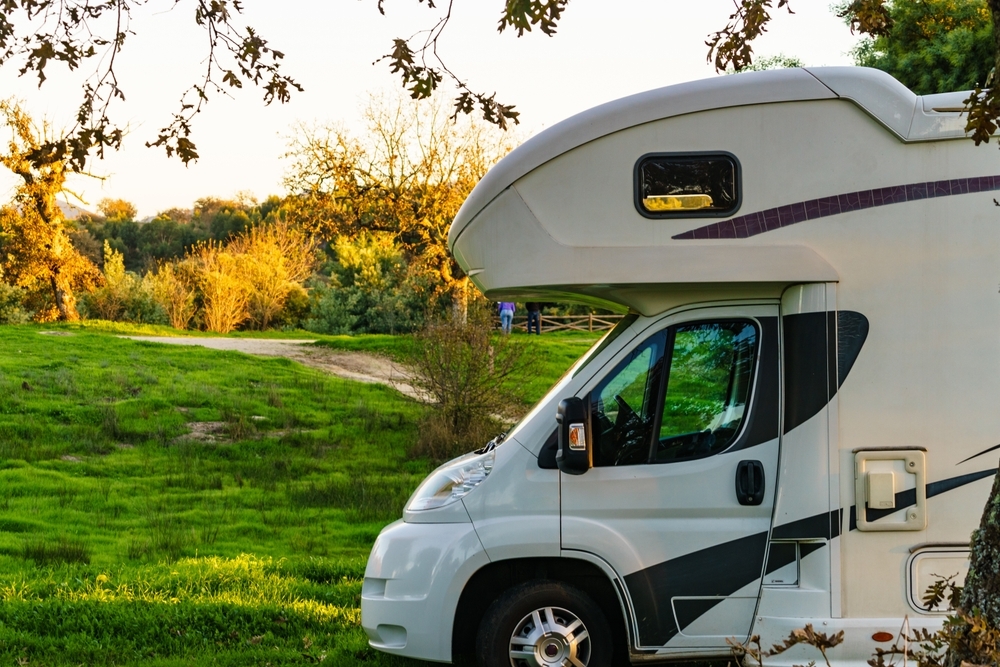
When you invest in an RV or motorhome, you expect the freedom to travel without worrying about constant repairs. Unfortunately, some owners quickly discover they purchased a “lemon,” otherwise known as a recreational vehicle plagued by defects that affect its safety, value, or usability. Virginia RV Lemon Law offers important protections for consumers, but the rules for RVs and motorhomes can be more complex than those for standard cars. Understanding how these laws work in Virginia can help you protect your investment and your rights.
What Is Considered a “Lemon” Under Virginia Law?
Virginia’s Motor Vehicle Warranty Enforcement Act, also known as the state’s lemon law, applies to motor vehicles purchased or leased for personal, family, or household use. This includes motorized RVs that can be driven on their own, such as Class A, Class B, and Class C motorhomes. However, the law may not cover towable campers or fifth wheels in the same way, so it is important to understand your RV type before filing a claim.
A vehicle is generally considered a lemon if:
- It has a defect or condition that substantially impairs its use, market value, or safety.
- The issue occurs within the first 18 months after the date of delivery.
- The problem is not repaired after three or more attempts
- The RV is out of service for 30 or more calendar days during that period because of repairs.
If your RV meets these criteria, you may be entitled to a replacement, a refund, or other compensation.
Similar Post: Is There a Time Limit to File a Lemon Law Claim in Virginia?
Why RV Lemon Law Claims Can Be More Complicated
While Virginia’s lemon law covers motorized RVs, not every part of the vehicle may be included. Many manufacturers argue that the “living area” of the motorhome, which includes plumbing, appliances, and other amenities, falls outside the lemon law’s scope. Instead, they may only apply warranty coverage to the chassis and driving components.
This can create a frustrating situation for owners. For example, you might have a luxury Class A motorhome with persistent water leaks or electrical failures in the living quarters, yet the manufacturer claims these are not covered by lemon law protections. In such cases, you may need to look beyond Virginia law to federal warranty protections like the Magnuson-Moss Warranty Act.
The Magnuson-Moss Warranty Act as a Back-Up Option
The Magnuson-Moss Warranty Act is a federal law that requires manufacturers to honor their written warranties and gives consumers the right to seek legal remedies if they do not. It applies to any consumer product, including RVs and motorhomes, that costs more than $10 and comes with a written warranty.
Under this law, if your RV’s defects are not covered by Virginia lemon law, you may still have another path to pursue repairs, a replacement, or a refund. One advantage is that it can apply to defects in the living quarters of a motorhome, not just its driving components.
Here’s how it works:
- $10 Threshold: If a written warranty is offered on a consumer product costing more than $10, the warranty must be clearly labeled as either a “full” or “limited” warranty, as required by the Federal Trade Commission.
- $15 Threshold: If a written warranty is offered on a product costing more than $15, the warranty must be disclosed to the consumer and made available for review before the purchase is completed.
This law can be an important tool for RV owners, especially when certain components are excluded from state lemon law protections. If your case is successful, the Magnuson-Moss Warranty Act also makes it possible to recover attorney fees.
Common Defects in RVs and Motorhomes
Because RVs combine the mechanical systems of a vehicle with the amenities of a small home, they are vulnerable to a wider range of defects. Some of the most common issues that could qualify under Virginia RV Lemon Law or federal warranty laws include:
- Persistent water leaks from the roof, windows, or plumbing
- Electrical system failures, including faulty wiring or batteries
- Malfunctioning heating or air conditioning systems
- Defective slide-outs or leveling systems
- Brake, steering, or transmission problems
- Engine overheating or chronic stalling
- Problems with generator performance
- Safety hazards, such as propane leaks
When defects keep your RV from being used as intended or create safety concerns, you should document every repair attempt and related expense.
Similar Post: Bought a Used Car in Virginia? What the Lemon Law Does (and Doesn’t) Cover
How to Protect Your Rights if You Suspect You Have a Lemon
If you believe your RV or motorhome qualifies under Virginia lemon law, taking the right steps early can strengthen your case:
Document All Repairs
Keep copies of repair orders, invoices, and written communication with the dealer or manufacturer. The more detailed your records, the easier it will be to prove repeated repair attempts.
Track the Days Out of Service
Mark every day your RV is in the shop. Once you reach 30 days out of service in the first 18 months, you may meet the lemon law threshold.
Give the Manufacturer Written Notice
Virginia law requires you to give the manufacturer one final chance to fix the defect after you notify them in writing. Send your notice by certified mail to create a paper trail.
Consult a Lawyer Familiar with RV Lemon Law
Because RV cases involve both automotive and residential components, they often require an attorney who understands how to navigate these overlapping areas of law.
Remedies Available Under Virginia RV Lemon Law
If your claim is successful, you may be entitled to:
- A replacement RV that is comparable to your original purchase
- A refund of the purchase price, including taxes, registration fees, and other charges
- Reimbursement for incidental costs, such as towing, temporary lodging, or rental vehicles
- Repairs at no cost for covered defects
- In some cases, attorney’s fees paid by the manufacturer
If you proceed under the Magnuson-Moss Act, you could recover similar remedies, even if the defects involve parts of your RV not covered by Virginia’s statute.
How Virginia’s Law Differs from Other States
One reason to work with a Virginia attorney is that lemon laws vary widely between states. Some states exclude motorhomes altogether, while others cover only certain components. Virginia is relatively consumer-friendly in that it includes motorized RVs in its definition of a “motor vehicle” under the lemon law. However, disputes often arise over what parts of the RV qualify, which makes legal representation essential.
The Importance of Acting Quickly
Time is critical in lemon law cases. In Virginia, the 18-month eligibility period starts the day you take delivery of your RV or motorhome. Waiting too long to address a defect could leave you without lemon law protections and force you to rely solely on the manufacturer’s warranty.
By acting promptly, documenting repairs, notifying the manufacturer, and contacting an attorney, you maximize your chances of resolving the issue in your favor.
Contact Attorney James B. Feinman for Guidance on Virginia RV Lemon Law
Owning an RV or motorhome should be about freedom and adventure, not repeated trips to the repair shop. Virginia RV Lemon Law gives motorhome owners powerful tools to address serious defects, but the unique nature of RVs means the process can be more challenging than for cars or trucks. Between disputes over coverage, the potential need to use federal warranty laws, and the strict timelines involved, having knowledgeable legal guidance can make all the difference.
If your RV is spending more time in the shop than on the road, you do not have to navigate this process alone. An attorney experienced in RV lemon law cases like James B. Feinman can review your situation, explain your options under both Virginia and federal law, and work to secure the refund, replacement, or repairs you deserve so you can get back to enjoying the open road.
Call 434-216-0166 or fill out our online contact form to schedule a free consultation. Attorney James B. Feinman represents clients with lemon law cases throughout the state of Virginia.
Disclaimer: This blog is intended for informational purposes only and does not establish an attorney-client relationship. It should not be considered as legal advice. For personalized legal assistance, please consult our team directly.
